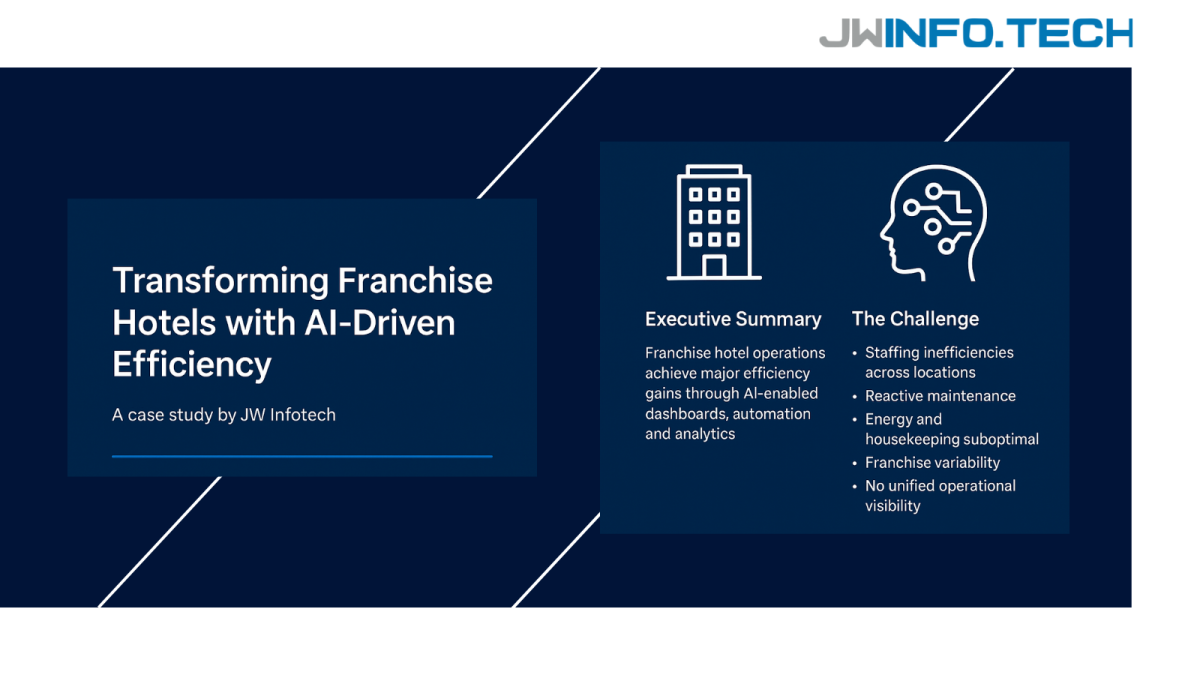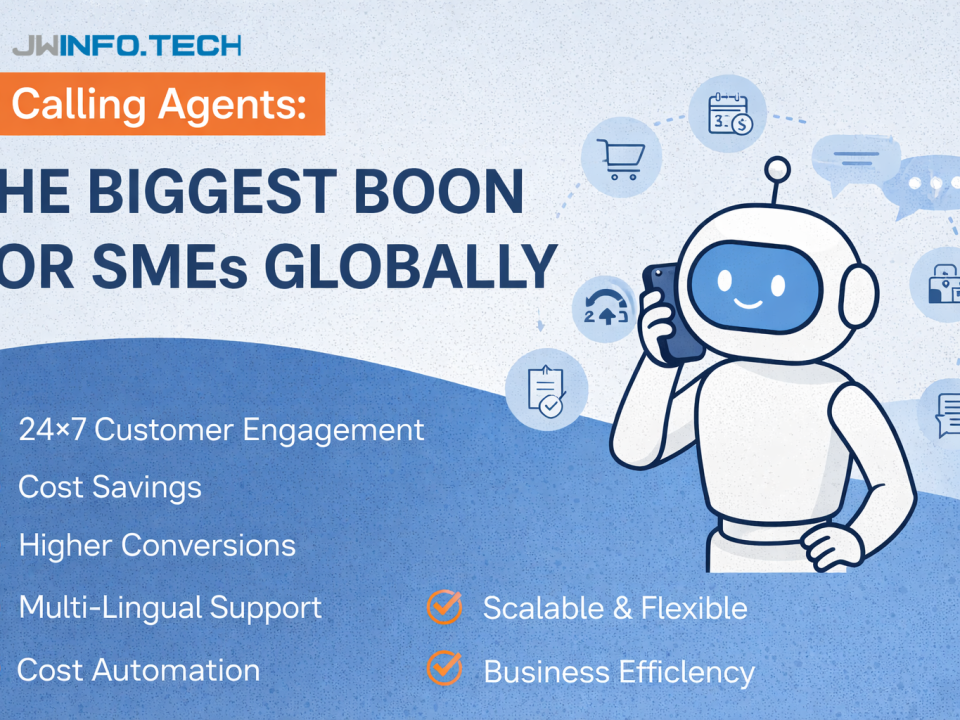Transforming Franchise Hotels with AI-Driven Efficiency

“How AI Dashboards Change Efficiency — NexaSight”
October 30, 2025
Revolutionising Voice Calling with AI-Agent Innovation
November 15, 2025Franchise hotel groups manage disparate properties, staffing levels, energy costs and guest experiences across locations. When AI is implemented effectively — via dashboards that integrate live data streams (guest flow, energy usage, staff tasks, maintenance events) — the result is a measurable shift in the efficiency matrix: faster response times, reduced waste, higher utilisation of staff and systems. Industry sources confirm that AI is improving hotel operations through automation and predictive models.
The Challenge in Franchise Hotels
- High fixed staffing across locations regardless of real-time demand leads to cost inefficiencies.
- Reactive maintenance means downtime and guest complaints escalate.
- Energy usage and housekeeping scheduling often blind-spotted.
- Franchise variability: each hotel has different systems, making standardisation difficult.
- Lack of unified operational visibility across properties.
The Solution by JW Infotech
We architected an AI-enabled operational dashboard for franchise hotel groups that delivered:
- Live guest flow analytics: cameras/sensors detect peak ingress, lobby congestion, elevator wait times.
- Staff deployment optimisation: AI correlates guest flow, scheduled events, occupancy and predicts daily staffing needs per zone.
- Predictive maintenance & energy optimisation: sensors and history feed models to schedule room-or equipment-maintenance, adjust HVAC lighting based on occupancy.
- Unified multi-site view: headquarters can view dashboard KPIs across properties, enabling benchmarking and best-practice rollout.
- Role-based widgets for regional managers, property managers and operations leads.
Implementation Roadmap
- Discovery & baseline (4-6 weeks): map key metrics (occupancy %, service response time, energy kWh per room), select pilot properties (2–3 hotels).
- Pilot deployment (8–12 weeks): install sensors/cameras, train AI models, dashboard roll-out for pilot hotels.
- Validation & refinement (4 weeks): measure against baseline, refine thresholds, train staff on insights.
- Scale-up (6-9 months): roll to all properties in franchise network, embed AI findings into standard operating procedures.
Outcomes & KPIs
Based on industry findings and our pilot, typical gains in the hotel sector include:
- Staff cost reduction: due to dynamic staffing aligned to guest flow and events
- Energy cost savings: AI-driven occupancy and HVAC/light control can reduce energy usage significantly.
- Service response improvement: guest issues handled more quickly as dashboard alerts identify bottlenecks.
- Maintenance downtime decreased: predictive models shift maintenance from reactive to scheduled, improving room availability.
For example, one property chain reduced operation cost by ~20% within first 12 months of AI dashboard implementation.
Recommendations & Best Practices
- Start with one or two high-leverage KPIs (e.g., response time, labour cost per occupied room) so ROI is visible.
- Ensure data standardisation across properties: same sensors or data schema.
- Train staff to act on insights: dashboards alone don’t deliver value unless actions follow.
- Use a phased rollout: successful pilot builds case for broader investment.
- Address change management and privacy: staff should understand new processes; guest data must be protected.
When implemented thoughtfully, AI dashboards change the efficiency matrix of franchise hotel organisations — shifting the paradigm from “manage by reaction” to “operate by insight.” For hotel operators seeking both cost-control and guest-experience uplift, AI is the smart next step.



